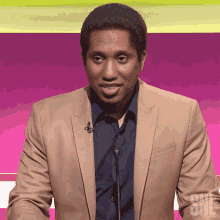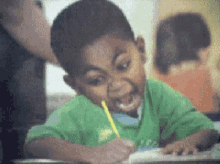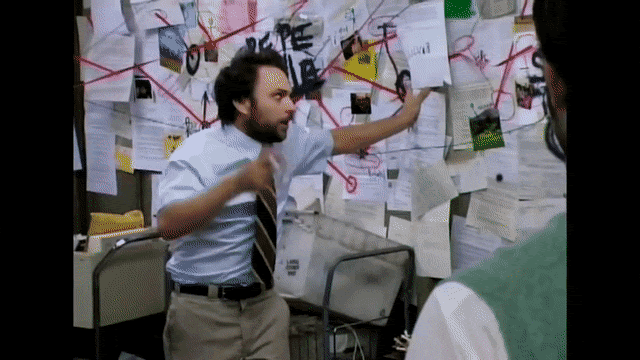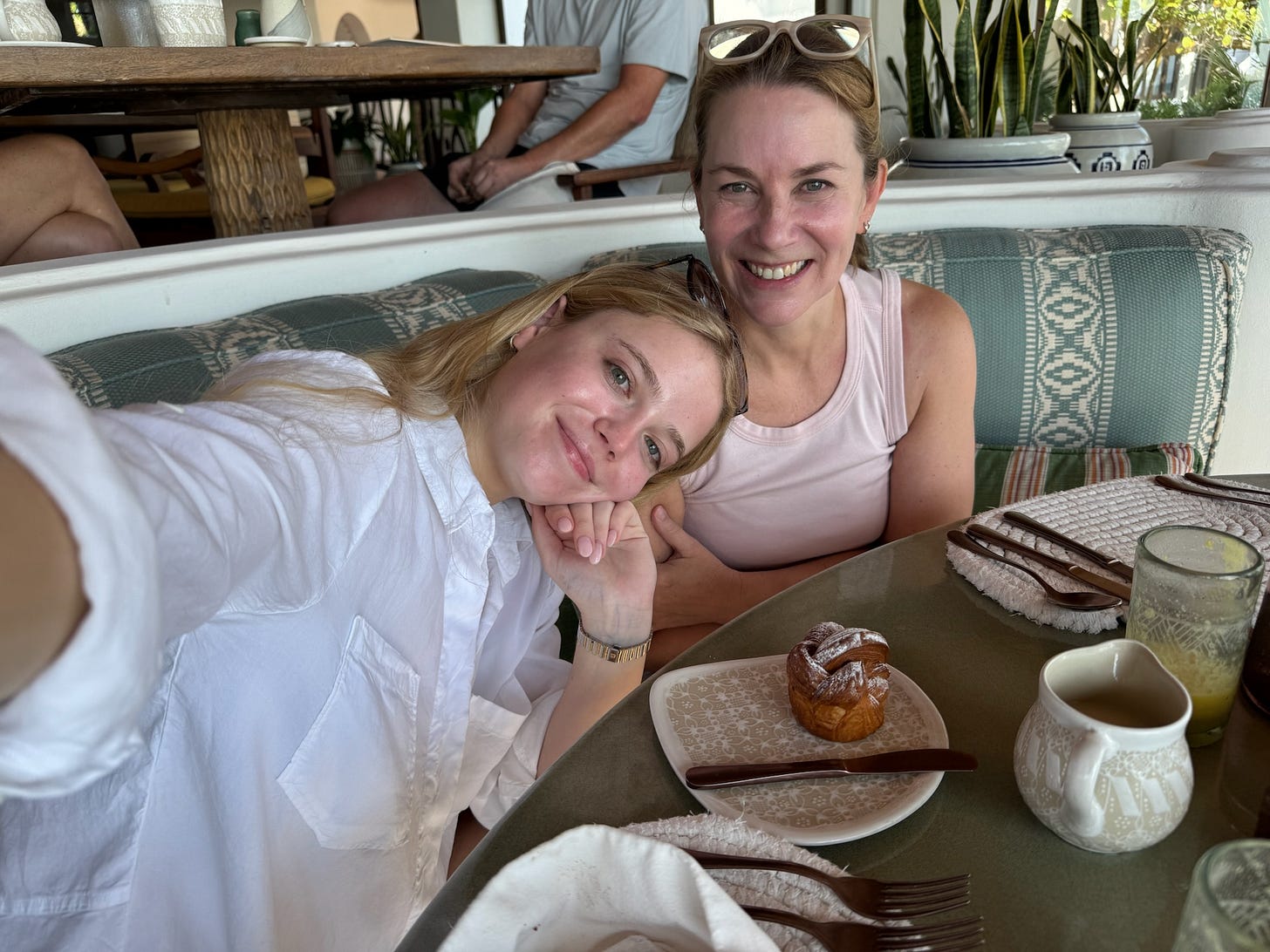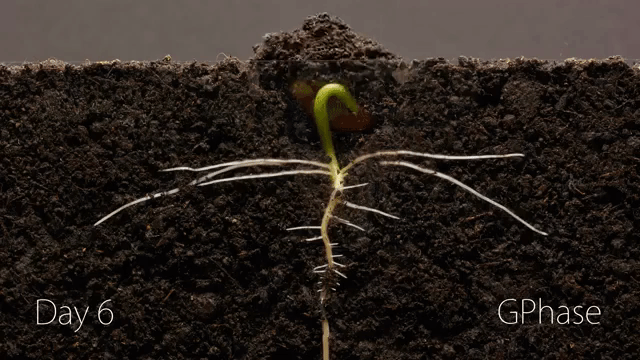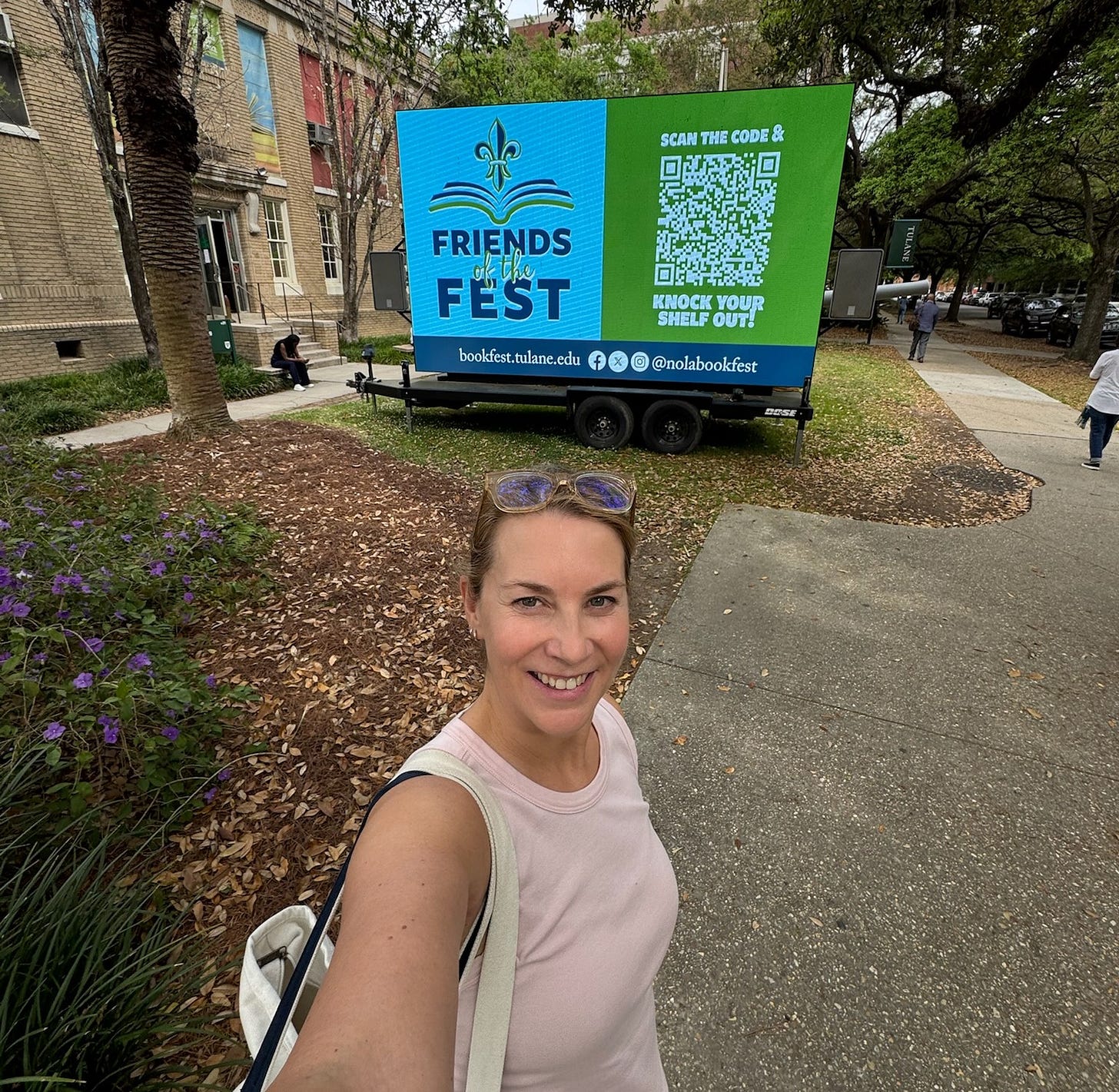The Luminist is a reader-supported publication that illuminates the pain, the pleasure, and the paradox on the path to technicolor living. Subscribe below to receive posts about how loss teaches us to get the most out of life (along with silly gifs) in your inbox every Saturday.
"I'm so glad I can take a break from using my brain!"
Last Sunday morning, Kendall and I were slumped at French Truck Coffee's narrow counter, waiting for our breakfast sandwiches.
The place hummed with the weekend crowd, air thick with chicory and conversation. I nursed a cold brew; she, a vanilla latte. We both drooped like marathoners past the finish line — her from a night dancing on Frenchmen Street, me from three days of intellectual whiplash at the New Orleans Book Festival.
"Tone deaf, mom!" She deadpanned, as her day ahead consisted of studying for a marketing exam and writing a history paper. Mine? Long walks in Audubon park, a stop at my favorite bookstore, and a ton of staring into space.
Because holy moly, this year's festival rewired me.
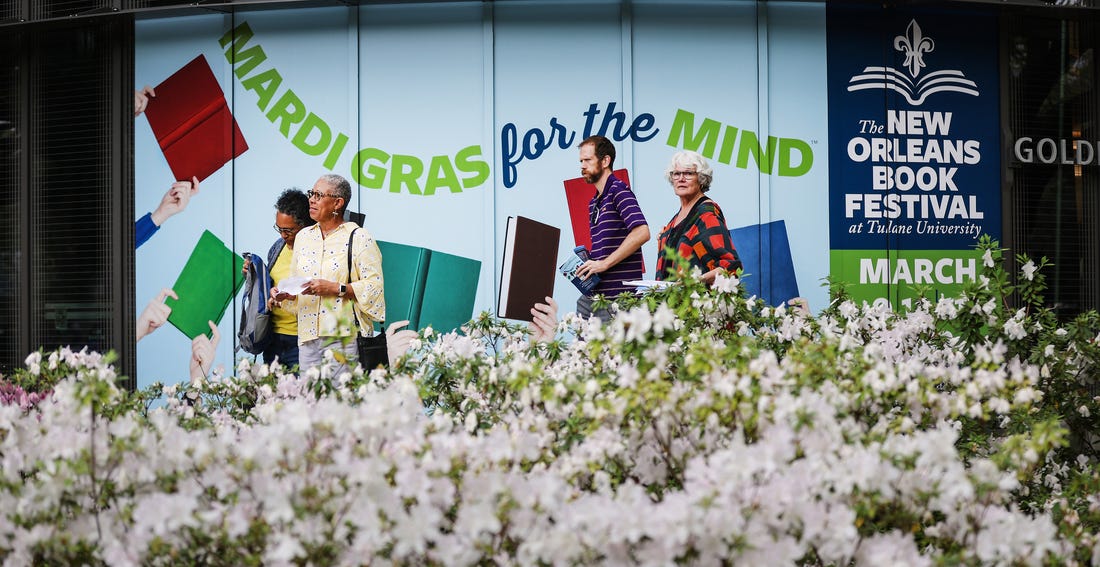
Not just through the ideas I encountered, but through realizations about how I've evolved since I first walked these grounds.
There was something deeply satisfying about being in that exact spot, that exact coffee shop, thinking about that exact festival that I had attended the year before, and the year before that. To feel how time hadn’t left me unchanged. I was different in tangible ways I might not have noticed until I came back to Book Fest, back to French Truck.
The festival itself was a kaleidoscope of ideas.
I bypassed the bigwig authors in the main tent (Michael Lewis, Gen. Petraeus, John Grisham, Bob Woodward, Dr. Fauci) in favor of the esoteric — a tactical choice that had less to do with intellectual snobbery and more to do with finding a seat without waiting in Black-Friday-sized lines.
I learned that the Mississippi River is more than just America's liquid interstate. Through Boyce Upholt's book, I glimpsed the river that Mark Twain knew — not just an industrial channel but a complex ecosystem, a cultural dividing line, a spiritual touchstone. Ernest Scheyder made me confront the uncomfortable truth about my beloved iPhone — this warm rectangle I cradle for hours daily, exists because someone, somewhere, is pulling lithium from the earth. “My clean energy future has dirty hands”, I tapped into my sleek, strip-mined device. Sarah Lewis had me questioning why I tick "Caucasian" at the doctor's office when I've never set foot in the Caucasus — the sketchy origins of race as a construct leaving me both enlightened and unsettled.
But as I filled my notebook with insights from others, I found myself scribbling unexpected observations in the margins — notes not about the panelists, but about me.
Four personal revelations emerged between coffee refills and sweaty walks between venues:
I think like a writer now.
When I wrote about my first BookFest experience, I was still navigating the strange limbo between "person who writes" and "writer." One hundred-plus posts later, something has shifted.
Yes, I have a book deal now, and that sure does help. But on a deeper level, storytelling has become my craft. And while surrounded by other writers and authors, I noticed sneaky tricks of the trade I couldn’t have pointed out before. Not just the words they use — but the spaces between them. Not just the substance of their stories — but how they're woven, layered, connected, like watching a builder frame a house while simultaneously living in it.
I wasn't merely absorbing content; I was studying craft. How authors leaned into microphones when sharing something intimate. How they navigated vulnerable passages without flinching. How they fielded questions that struck nerves without becoming defensive. As my notepad filled with content, my writer's mind catalogued technique.
Writing has changed how I see. And seeing differently has changed how I write.
Obsession has transformed from distraction into inspiration.
Author after author spoke about how they began writing about their topics. To the very last one, they described getting interested in something, then following it down the rabbit hole like a young girl with no self-preservation instinct. The mining expert who became obsessed with supply chains. The biographer who stumbled across a forgotten letter. The novelist who couldn't shake a character who appeared in a dream.
When you follow your rabbit holes, passion carries you through the inevitable roadblocks. It transforms "that’s an interesting idea…" to "I can't stop thinking about this" to “holy smokes, people need to hear about this!”
But in the days of juggling my corporate career with single parenthood, I never had the luxury of following curiosity where it led. My mental GPS was perpetually set to "fastest route with no tolls," recalculating every time I threatened to veer off course. Now I have this luxury, and I'm discovering that what looks like indulgence is actually the engine of creative sustainability.
My body has more to offer than shuttling my brain around.
"Your body is not the all-terrain vehicle for your brain," my editor Leona wrote recently. I've treated mine that way for a long time, expecting my physical self to dutifully carry my thinking self from meeting to meeting, milestone to milestone, without complaint or need. In corporate America, I was essentially a brain with legs attached for transportation purposes only.
But during BookFest, I found I could not take in all that information without getting away from my notebook and phone and just walking walking walking. Something about the rhythm of footsteps helps me process the nuances of what's been said, determine what I agree with, what I don't, what requires more thought.
I’m realizing that the body is a thinking tool itself — a processor, a filter, a way of knowing that operates alongside but distinct from rational thought.
When I honor both, I can absorb more deeply than I ever could through intellect alone.
My kids actually think I'm interesting (who knew?).
No, I did not drag my kids to Book Fest. That's mutiny on a stick. But what surprised me was their genuine interest in what I’d learned and what I thought about it all.
(This bullet point might be more about them changing than me, but I don’t care because it’s DELIGHTFUL and I want to share it.)
Every evening when I met Kendall for dinner, she quizzed me. "Tell me what you learned,” or "What was your favorite?" Then, Connor and I did a giant FaceTime download on Sunday afternoon that meandered from the festival to books we'd recently picked up, from his love of fiction versus my preference for non-fiction to our shared desire to expand our minds.
Three years ago, our conversations were logistics and gentle check-ins. "Did you eat something other than pizza this week?" "Mom, I need more money for *cough* books." Now they're exchanges between adults with opinions and perspectives that merit discussion.
As I continue work on my own book — Do Loss: A New Way to Move Through Change — to meet my May 1 deadline, Book Fest has given me a profound realization about change itself.
Standing in the same lines year after year reminded me that personal continuity, this idea that as adults we’re pretty much unchanging, is completely baloney.
We fear big changes — new jobs, empty nests, unexpected losses — as if without them, we'd remain perfectly preserved versions of our current selves. But that's not how life works.
Change happens whether we invite it or not, whether we notice it or not.
The person who walked into French Truck Coffee in 2023 is as different from me today as New Orleans in summer is from New Orleans in winter — same geography, entirely different ecosystem.
We are never standing still, even when we think we are. The changes we fear as catastrophic disruptions are just more visible symptoms of the evolution happening beneath the surface all the time, like suddenly noticing your child is taller after months of imperceptible growth.
I find a peculiar comfort in this.
Because it means that the changes we resist most fiercely are often just markers of what's already been brewing. Looking at reality that way, the question shifts — it isn't whether things will change, but rather how we will meet the long-coming change when it finally breaches our awareness.
Who will I be when I return to French Truck Coffee next year? I have no earthly idea. But I know for certain she'll be a person I haven't met yet. And she'll be carrying a book with my name on it — both familiar and strange, both me and not-me.
Whoever she is, I hope she gives herself to it fully. Because I’d rather be in the flow of life, than fighting against it.
To the changes that shape us, without us even noticing,




